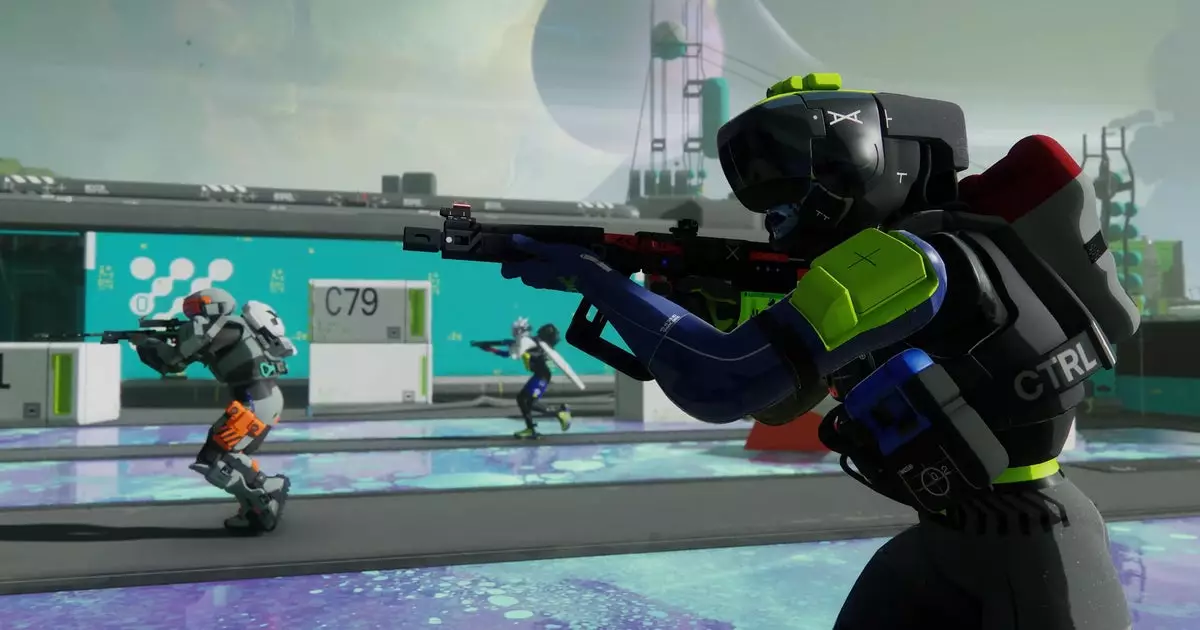After nearly two years of speculation and excitement, Bungie has finally pulled back the curtain on the highly anticipated reboot of Marathon. Enthusiasts of the original series and newcomers alike are buzzing with excitement, particularly after the recent gameplay reveal. Slated for release on September 23rd, Marathon is shaping up to be a visual spectacle. Its polished aesthetic evokes comparisons to titles like Mirror’s Edge, suggesting a design ethos that prioritizes sleekness and immersion. However, the real focus should be on the gameplay mechanics, which promise a return to the studio’s trademark blend of fast-paced, engaging first-person action.
Gameplay Mechanics that Engage
The extensive gameplay footage indicates that Bungie is not merely resting on its reputation; it’s poised to innovate in an ever-evolving genre. Marathon’s matches allow players to join forces in teams of up to three, reinforcing the cooperative spirit that gaming has embraced in recent years. A unique twist is the loot collection philosophy—players must navigate perilous environments, and facing death means forfeiting any gathered treasures. Yet, those who skillfully make it back unscathed can enjoy the spoils of their journey in future sessions. This adds a layer of tension and strategy, ensuring every encounter feels significant.
What’s intriguing is the scaling of player count, with a maximum of 18 participants in each match. Such flexibility opens the door for solo adventures while maintaining options for collaboration. At launch, players will choose from six runners, each presumably bringing unique abilities to enhance strategy and diversity. This customizable experience could keep players engaged beyond typical matchmaking duration, suggesting Bungie is committed to creating a rich, layered environment.
Seamlessly Blending Storytelling with Gameplay
Yet, what makes Marathon potentially groundbreaking is not solely its arcade-like thrill but the intricate juxtaposition of seasonal storytelling events with gameplay. Bungie, known for its narrative-driven frameworks, is asserting that its approach to storytelling will not be abandoned in favor of competitive mechanics. Instead, they could be woven into the fabric of gameplay, providing context for players as they engage with the environment and their objectives. This method strays from the trend of sidelining narrative elements and echoes Bungie’s heritage as a creators of riveting worlds.
Alpha Testing and Community Building
The announcement of a closed alpha, launching on April 23rd, is sure to stir the community further—though only for North American players. While it’s understandable that regional rollouts may create some frustrations, it also emphasizes Bungie’s commitment to community feedback. By involving players early on through platforms like Discord, they are fostering a participatory culture that can build loyalty and excitement leading up to the full launch. This model of inclusion marks a positive evolution in how game developers interact with their fanbase, potentially refining the overall experience based on player input.
Despite possible concerns regarding Bungie’s history with the handling of complex narratives, there is an optimistic air surrounding the Marathon reboot. Perhaps it is this blend of exciting gameplay, collaborative elements, and nods to audience engagement that may finally offer something fresh in the fast-paced realm of first-person shooters. As the release date approaches, the potential for Marathon to redefine expectations continues to grow, leaving both casual players and die-hard fans eager to dive into its sci-fi universe.


Leave a Reply